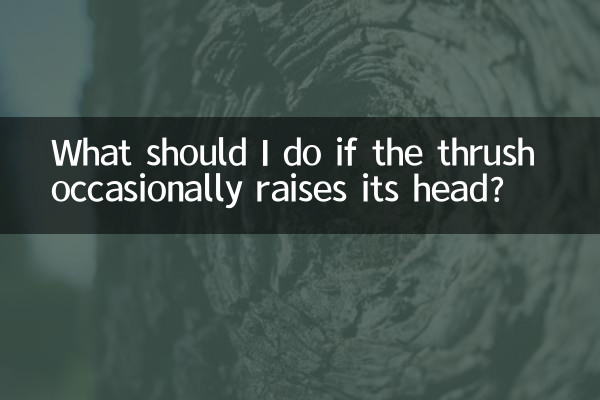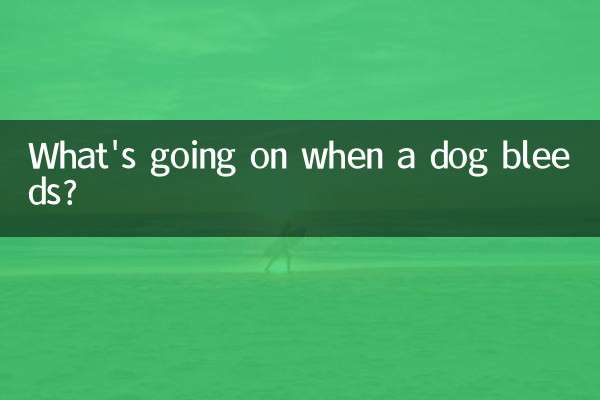What should I do if the thrush occasionally raises its head?
As a popular ornamental bird, the behavior and health of the blackbird are often concerned by breeders. Recently, many bird friends have discussed the problem of blackbirds occasionally raising their heads on social platforms and forums. This article will analyze this phenomenon in detail and provide solutions based on the hot topics and hot content on the Internet in the past 10 days.
1. Analysis of the reasons why the thrush raises its head

According to online discussions and expert opinions in the past 10 days, the blackbird occasionally raising its head may be caused by the following reasons:
| reason | Proportion | Typical symptoms |
|---|---|---|
| Uncomfortable environment | 35% | The cage is too small and the light is too strong |
| health problems | 25% | Accompanied by loss of appetite and loose feathers |
| behavioral habits | 20% | Occasionally raises head, no other abnormality |
| mood swings | 15% | Molt period, estrus period |
| other | 5% | genetic factors etc. |
2. Summary of popular solutions
According to recent advice from bird owners and veterinarians, the following measures can be taken to address the problem of thrushes raising their heads:
| solution | Applicable situations | Effective time |
|---|---|---|
| Improve the feeding environment | The cage is too small or the environment is noisy | 3-7 days |
| Adjust diet structure | Malnutrition causes | 1-2 weeks |
| Increase interactive companionship | Caused by emotional problems | instant relief |
| Medical examination | suspected disease | It depends on the situation |
| behavior modification training | habitual actions | 2-4 weeks |
3. Recent hot topics of discussion
In the past 10 days, discussions on the issue of thrushes raising their heads have mainly focused on the following platforms:
| platform | Discussion popularity | Main point |
|---|---|---|
| Baidu Tieba | high | Environmental factors are the main reason |
| Zhihu | middle | Pay attention to nutritional balance issues |
| Tik Tok | high | Share training and correction videos |
| Low | Mentioned by individual pet bloggers | |
| Professional Bird Breeding Forum | middle | Analyze the possibilities in detail |
4. Suggestions on preventive measures
According to recent expert advice, you should pay attention to the following points to prevent thrushes from raising their heads:
1.Choose the right cage: The size of the cage should be 2-3 times the body length of the thrush, and the height should be sufficient.
2.Keep the environment stable: Avoid frequently changing the feeding position and keep the light appropriate.
3.Nutritionally balanced: Regularly supplement vitamins and minerals, especially calcium.
4.Regular physical examination: Have a professional physical examination at least once a year to detect potential health problems in a timely manner.
5.Moderate training: Help birds develop good behavioral habits through positive reinforcement training.
5. Excerpts from expert opinions
The views recently expressed by bird experts on multiple platforms are worthy of attention:
"Occasionally raising the head of a thrush is normal behavior in most cases. Special attention is only required when the frequency increases or is accompanied by other symptoms." - Professor Zhang (expert in bird behavior)
"In modern urban breeding environments, thrushes are more likely to have behavioral abnormalities, which is closely related to the limited space for movement." - Dr. Li (Director of the Pet Hospital)
"Environmental enrichment can effectively reduce abnormal behaviors of birds, including head-raising phenomena." - Researcher Wang (Head of the Zoo Bird Hall)
6. Summary
Based on recent online discussions and expert opinions, in most cases there is no need to worry about blackbirds occasionally raising their heads, but continuous observation is required. If the frequency increases or is accompanied by other abnormalities, corresponding measures should be taken promptly. The most important thing is to provide a comfortable living environment and scientific feeding and management for the loving birds.
Hopefully this article will help you better understand and deal with head thrush issues. If you have any questions, it is recommended to consult a professional avian doctor or experienced breeder.

check the details

check the details